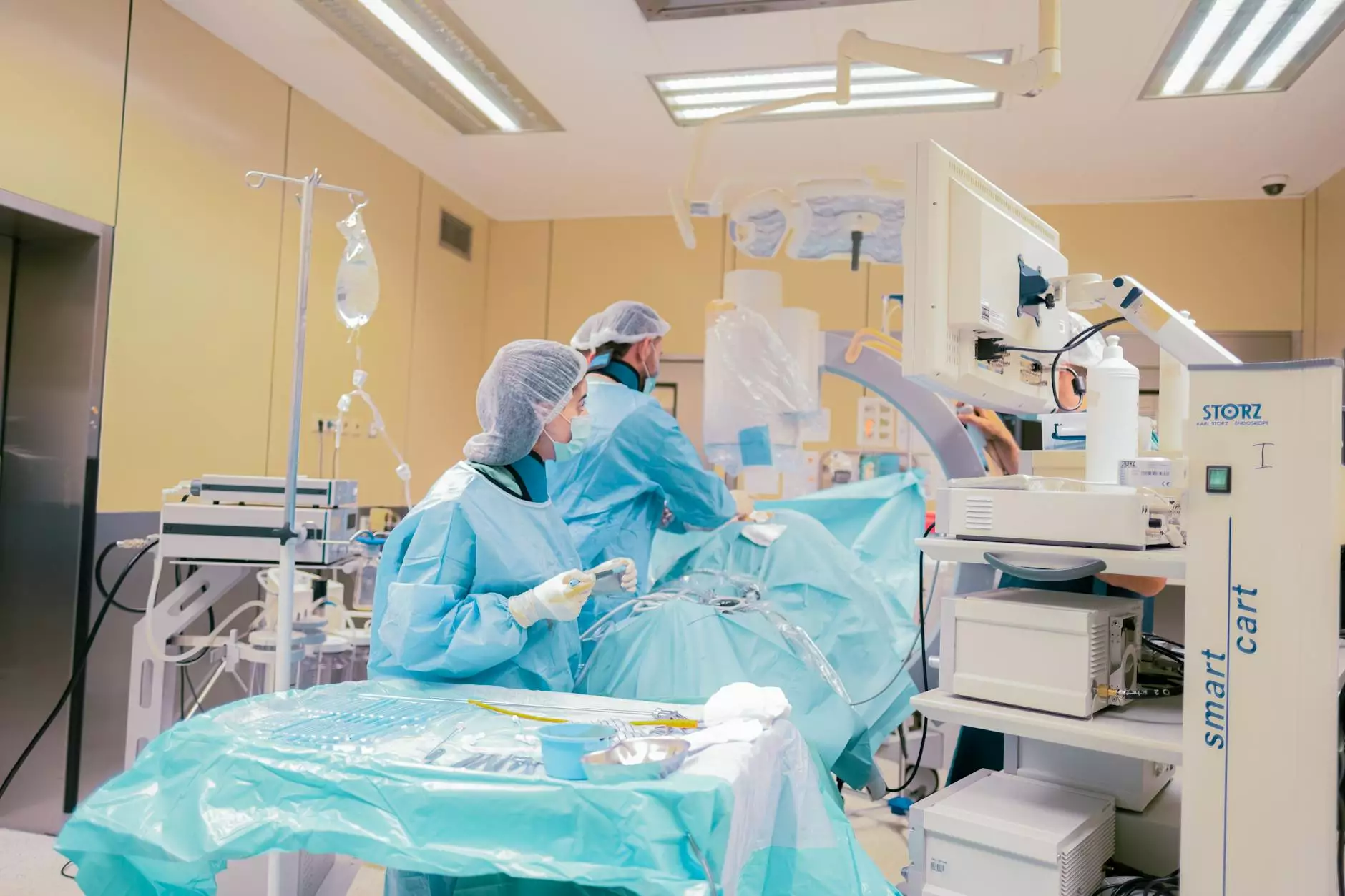Understanding the Role of a Thoracic Surgeon in Modern Healthcare

The field of thoracic surgery is a critical component of the healthcare system, focusing on surgery of the chest, including the lungs, heart, esophagus, and other structures within the thoracic cavity. This comprehensive guide will delve into the intricate world of a thoracic surgeon, exploring their qualifications, the common procedures they perform, and their vital role in health and wellness.
What is a Thoracic Surgeon?
A thoracic surgeon is a medical doctor specializing in surgical treatments for diseases of the chest. Their expertise is crucial in the management of various conditions affecting the thoracic organs. These specialists undergo extensive training that includes:
- 4 years of medical school
- 5 to 7 years of residency in surgery
- 1 to 2 years of specialized fellowship training in thoracic surgery
This rigorous education equips them with the skills necessary to perform complex surgical procedures and manage critical care patients effectively.
Why is Thoracic Surgery Important?
Thoracic surgery plays a vital role in addressing life-threatening conditions, improving patient outcomes, and enhancing the quality of life for many individuals. The following are some key areas where thoracic surgeons make a significant impact:
Treatment of Cancer
Thoracic surgeons are often involved in the treatment of lung cancer, esophageal cancer, and mediastinal tumors. They perform lung resections, esophagectomies, and other procedures aimed at excising tumors and facilitating recovery.
Management of Traumatic Injuries
In emergency situations, these surgeons address traumatic injuries to the chest, including penetrating wounds and blunt trauma. Timely surgical intervention can be life-saving, particularly in cases of hemothorax or pneumothorax.
Esophageal Disorders
Conditions such as achalasia, esophageal reflux disease (GERD), and esophageal strictures often require surgical intervention. Thoracic surgeons are adept at performing procedures such as fundoplication and esophagectomy to correct these issues.
Common Procedures Performed by Thoracic Surgeons
Below is a detailed look at some of the major procedures undertaken by thoracic surgeons:
- Lobectomy: Surgical removal of a lobe of the lung, often performed to treat lung cancer.
- Video-Assisted Thoracoscopic Surgery (VATS): A minimally invasive technique that allows for the examination and treatment of thoracic diseases without large incisions.
- Coronary Artery Bypass Grafting (CABG): Although primarily a cardiovascular procedure, thoracic surgeons may also be involved in dealing with the thoracic aspect of heart surgery.
- Thoracotomy: A surgical procedure where an incision is made into the chest wall to access the thoracic organs.
- Esophagectomy: The surgical removal of part or all of the esophagus.
The Qualifications of a Thoracic Surgeon
Becoming a qualified thoracic surgeon requires extensive training and certification. The following qualifications are crucial:
- Medical Degree: Completion of a recognized medical school program.
- Residency Training: Completion of a residency in general surgery before entering a fellowship in thoracic surgery.
- Board Certification: Obtaining board certification from the American Board of Thoracic Surgery or equivalent body.
- Continuing Education: Engaging in ongoing education to stay updated on the latest surgical techniques and technologies.
Challenges Faced by Thoracic Surgeons
Like any specialized medical field, thoracic surgery comes with its unique set of challenges. Some of these include:
- Complexity of Cases: Many patients present with multiple comorbidities, making surgical decisions more intricate.
- Technological Advancements: Staying abreast of the latest techniques and equipment, such as robotic surgery, requires continuous learning.
- Emotional Toll: Dealing with critically ill patients and their families can be emotionally taxing.
- High Expectations: Patients expect optimal outcomes, adding pressure to perform at the highest level.
How to Choose the Right Thoracic Surgeon
Selecting a skilled thoracic surgeon is crucial for the successful management of thoracic conditions. Here are some tips to consider:
- Research Credentials: Verify the surgeon's board certification and residency training.
- Experience: Look for a surgeon with extensive experience in the specific procedure you may require.
- Hospital Affiliation: Ensure they are affiliated with a reputable medical institution known for excellence in thoracic surgery.
- Patient Reviews: Read patient testimonials to gauge satisfaction and outcomes.
- Communication: Choose a surgeon who communicates clearly and addresses your concerns effectively.
Future of Thoracic Surgery
The landscape of thoracic surgery is undergoing rapid transformation. Innovations such as robot-assisted surgery, enhanced recovery protocols, and personalized medicine are reshaping how surgeries are performed and how patients recover post-operatively. These advancements promise to improve patient outcomes and streamline surgical processes significantly.
Conclusion
The role of a thoracic surgeon is undeniably vital in today's healthcare environment. Their expertise not only saves lives but also enhances the quality of life for countless patients grappling with severe thoracic conditions. As the field continues to evolve with technological advancements and improved surgical techniques, the impact of thoracic surgeons will be felt even more profoundly in the medical community.
If you or a loved one are in need of thoracic surgery, understanding the qualifications and innovations of thoracic surgeons will empower you to make informed decisions about your health care.









